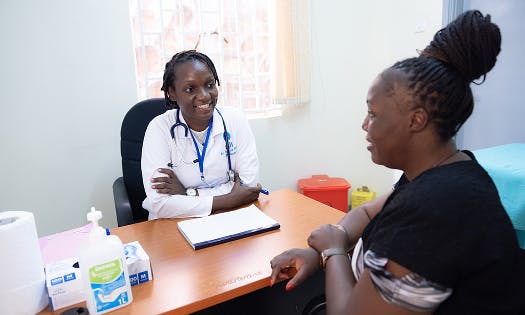SAFETY REPORTING AND PHARMACOVIGILANCE IN SOUTH AFRICA

The South African Health Products Regulatory Authority (SAHPRA) is an entity of the National Department of Health, created by the South African government to ensure that the health and wellbeing of humans is at its core.

Healthcare providers including doctors, nurses and pharmacists, as well as patients and consumers play a vital role in this activity by reporting adverse events associated with medicinal products that they experience or hear about during their professional and personal lives.
Remember, reporting an adverse event is always highly recommended!
There is a common misconception that there may be an assignment of blame to an individual reporting an adverse event. It is quite the opposite, reporting of adverse events helps to monitor the benefit-risk profile of medicines, and ultimately improve patient safety and patient outcomes.
What to report:
Any adverse event, regardless of whether it is serious, considered causally related to a particular medicine, or already listed in the relevant product information leaflet.
The following four minimum elements are required to constitute a valid adverse event report:
- A single identifiable patient.
- An identifiable reporter
- One or more suspect medicinal products
- One or more adverse events
For more information please click here.
A complete report should contain these four minimum elements plus additional details to provide a comprehensive description of the event(s) and any potential confounders and contributing factors.
When to report:
As soon as possible when you have the minimum information. For serious events it should ideally be within 24 hours.
Where to report:
SAHPRA or the marketing authorisation holder for the product in question.
How to report:
There are several ways to report to SAHPRA:
- Med Safety App – see Medsafety X SAHPRA for more information.
- eReporting via the SAHPRA website – see Primary eReporting (who-umc.org).
- Reporting form: Adverse Drug Reactions and Quality Problem Reporting Form - SAHPRA
What happens to a report submitted to SAHPRA:
They are assessed as part of signal detection activities, which may lead to a number of possible actions to protect patient safety, such as updates to product labelling, the introduction of risk minimisation activities, or restrictions on use. They are shared with VigiBase, the World Health Organisation’s database. Reports can inform regulatory decisions both locally and globally.
For general information on pharmacovigilance in South Africa
For general information on pharmacovigilance please see modules 1-4:
Have a question?
If you have a question about Pharmacovigilance in Africa contact us
NP-GBL-HVX-WCNT-250004 February 2025
Adverse events should be reported. Reporting forms and information can be found at yellowcard.mhra.gov.uk or search for MHRA Yellowcard in the Google Play or Apple App store. Adverse events should also be reported to GlaxoSmithKline on 0800 221441.
If you are from outside the UK, you can report adverse events to GSK/ViiV by selecting your region and market, here.